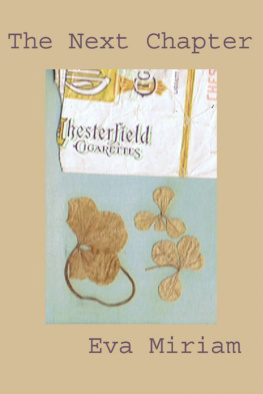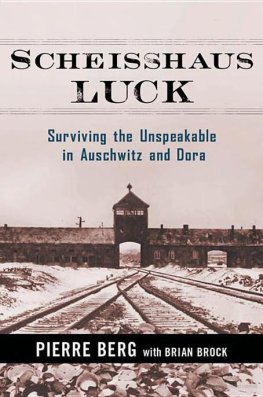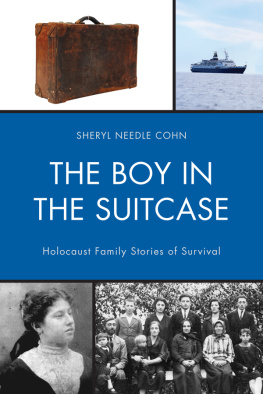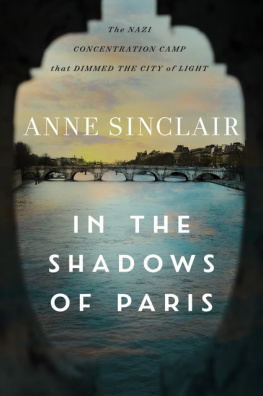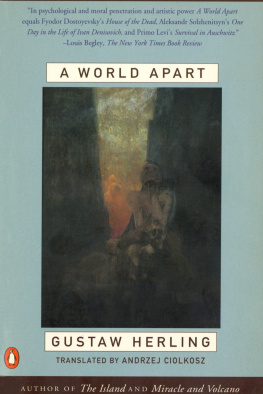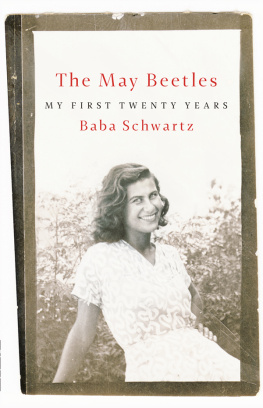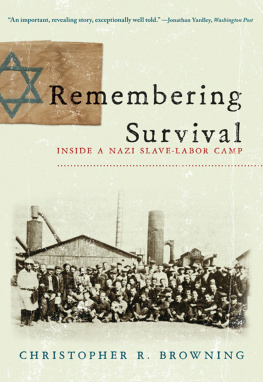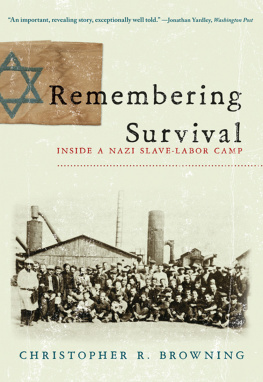THE NEXT CHAPTER
by
Eva Miriam
Copyright 2012 - Tom Bunzel
Smashwords Edition
All rights reserved
ISBN-13: 978-1478107224
ISBN-10: 1478107227
Cover by Debra Swihart
To those I love, present and gone.
ACKNOWLEDGEMENT
With my deep thanks to Kitty, for herperception and understanding and, of course, for all her work.
In memory of Marilyn, whose words ofencouragement kept me going.
INTRODUCTION
About 20 years ago, when she was about 75years old, my mother spent about a year typing her memoirs on anelectric typewriter, engaging an editor, revising the manuscript,and finding a literary agent in Los Angeles. While she got somenibbles, a conventional publisher did not want to publish anotherholocaust book.
But what makes my mothers book unique isthat it is not focused on her horrific wartime experiences, butrather on the psychological and emotional aspects of trying toreadjust to a life among normal people. And at a time when therewere those in her beloved southern California who were activelydenying the holocaust, she also wanted to make sure that thisthreat to historical accuracy and to freedom at large wasaddressed.
I have long wanted to see her work publishedbut it was only recently, when I learned enough aboutself-publishing and could combine that with the latest technologyin document scanning that I could see her dream realized. Now I amthrilled to be able to share her story, with no embellishment[except a few notes in brackets for clarification], exactly as shewanted it told.
-- Tom Bunzel
PART ONE
This is not a book about the Holocaust. It isabout survivors.
In spite of all the persuasive young voiceswho now vehemently declare that the Holocaust never happened (andthose who would like to agree), it happened.
And--as horrid and as gory as it sounds--itwas true.
For us, the survivors, the Holocaust did notend on the day of our liberation. Our liberation marked the end ofone chapter and the beginning of the next.
This book is about the next chapter.
And without it, the story is incomplete.
During the past forty years, history has beenrewritten. If you were not there, you might believe that theHolocaust was simply "genocide of the Jews."
"Genocide" means "systematicextermination."
For the eleven million who are dead, the"extermination" was only the end result. The word convenientlyomits the atrocities to which these people were subjected beforethey were allowed to die. To be excluded from the human race by theNazis was a compliment, not an offense. Only the consequencesweren't too pleasant.
"Of the Jews" is another falsification.
The victims were by no means limited to Jews;they were any dissidents.
Since the Nazis openly proclaimed theirforemost goal as the annihilation of all Jews, they were right toassume that the Jews were dissidents.
It is human nature to refuse your cooperationwhen someone wants to annihilate you.
But what about the others, the "Aryan"dissidents, Polish, Czech, Russian, French, German, those who werewith us in the camps? They included members of the clergy whorefused to worship Hitler instead of God; members of theUnderground: young people, guerillas, who fought the Nazis all overEurope and older people who helped young pilots escape to theWest.
There were also innocents who had beendenounced by a neighbor or even by their own Hitler Jugend [Youth]child for a reward or for spite. There were even some Germans inthe camps because they had moral principles and refused to bebrainwashed and molded to size.
They were with us, subjected to the same"systematic extermination." Some of them must have survived.
But where are they now?
Have they become deaf and dumb when voicesproclaim that the Holocaust is nothing but fiction and Jewishpropaganda?
Where are the Americans who opened the campsand saw the "fiction"?
There can be only one explanation: the beliefthat it only happened to the Jews eases the minds of all non-Jewishpeople, giving them a feeling of security.
Could anyone truly believe that nothing likethis could ever happen again?
It could. And it will unless a voice strongerthan mine shakes awake those who slumber in their frighteningcomplacency.
Those who receive freedom as a gift the daythey are born and believe they can keep it forever live with afalse illusion.
Freedom is indivisible and therefore must beguarded. One small crack --and it dissolves into dust.
It should be labeled FRAGILE. HANDLE WITHCARE.
Dawn came to Mauthausen concentration campand with it a new day which started just like all the others.
We awoke and knew we were still alive.
So we resumed the hectic activity ofyesterday and all the days before as far back as we dared remember.That meant that some of us remained lying in straw, staring blanklyat the ceiling. Some sat up and stared at the floor.
Haggard, empty faces, sad and smudged andapathetic; weird-looking zombies in whom only the faintest gleam oflife flickered. We were certain that the end was near--either oursor the war's, whichever came first.
There we were, staring, dumb and in a deepstupor, when the message came.
No fanfares, no blowing horns, no salvosannounced the message. It came in softly, on tiptoe, careful not toblow out the last spark of life in us. It said:
"You are free. The gates are open. You may goout."
We didn't understand and nobody moved.
But the message came again and again:
"You are free. The gates are open. You may goout."
We looked around and saw in each others' eyesthe same doubt and hope and questions: "Is it possible?" "Can it betrue?"
Then we ordered our bodies to get up. Keepingclose together for support in our little groups, we hobbled to theopen door of our barracks. There, outside, we saw other groups likeours and joined them and went wherever they went.
It looked like Judgment Day.
The dead arose from their graves andwalked.
We walked between the high walls built ofbodies. Here there was no dignity in death. The dead had been piledup haphazardly and in bizarre positions and we always tried toavoid looking at them. We were afraid that we might see a familiarface. And they had earned their peace.
Therebut for the grace of Godlay I.
They did not move and arise.
But we were moving and seemed to be alive.But this sceneso eerie and strangewas it real? And themessagewas it true?
When we reached the gates we saw that theywere open. We passed through and no machine guns waited for us. Wepassed a stretch of dusty road by which we had come in a centuryago, and nothing was there but meadows, fields, trees, flowers andpeace.
Free world.
Paradise.
The groups dissolved. Each of us needed to bealone.
I explored for a little while and then founda small green hill. I crawled up and sank, exhausted, under ablossoming tree.
I lay on my back, closed my eyes and tried tocatch my breath. I listened to the silence and the soft sounds ofnature, smelled the sweet scents and tried to believe it wasn't adream.
To test it, I carefully stretched my arms andlegs as far as I could, keeping my eyes closed, and all I felt wasfree space. Then I turned onto my stomach, stretched again, andstill nobody shoved, kicked or yelled,
"Stay on your spot."
I turned and turned and found that I had allthis space for myself and privacy: nobody listened in on mythoughts, nobody watched every move, nobody was near me for thefirst time in three years.
Then I opened my eyes and saw the worldagain. I saw the beauty of it and allowed it to become a part ofme.
Then, suddenly, it struck me with fullforce:
I survived... Did I?... Really?
Oh, yes ... I survived.
Look, world, here I come!
Next page
